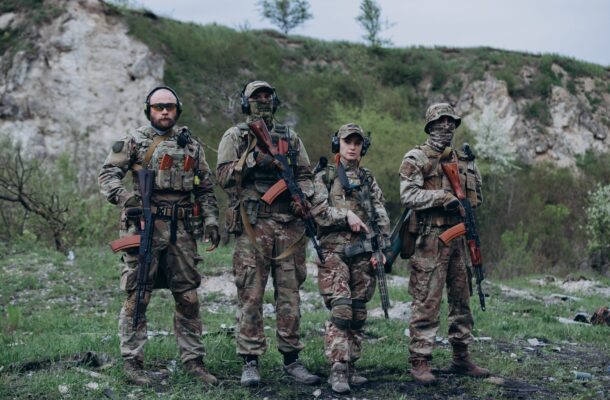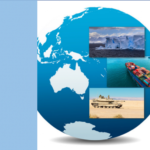The war the west must win

There are times when we must deal with the world as it is, not as we wish it to be. You will hear ministers and departments warn us of that pragmatic requirement when wicked problems and intractable issues arise and we must settle for less than what we want.
But there are times when we must not settle for less, when our national security, diplomacy, and military necessity face a crisis in which ‘the world as it is’ must be confronted, reshaped and returned to the world as we wish it to be—to the world as it was before the crisis arose.
With Russia’s invasion of Ukraine, now is such a time.
In Australia, there is a view in some quarters that the invasion does not engage our national interest directly and substantially and that we have more pressing regional priorities from which we cannot be distracted nor our resources diverted. That attitude ignores key geostrategic realities and requires recalibration. This crisis isn’t about defending a country that’s 15,000km away; it’s about defending our hard-won modern form of civilisation.
The bedrock of the rules-based international order, upon which our post-1945 civilisation is founded, is under deliberate attack by Russia and its direct military supporters, including North Korea. We must invest in the defence of Ukraine as if the invasion is an existential threat to our regional peaceful future—because it is.
Australia and other nations have faced existential crises to liberal democracy before, although in the case of the defence of Ukraine we are yet to adequately realise the connection to our prior experiences, or to unify as we did in the past in an unfaltering international collective response. We should resolve to make good those inadequacies in 2024, and Australia should be the remedy’s vociferous champion. Our regional stability and security depend in large part on a Ukrainian victory.
What are some lessons of the past? We refer to the global war of 1914–1918 as the First World War, but in 1914 and 1915 the full measure of hostilities was not grasped, let alone were they conceived as the first of two monumental calamities. At the time, writers mostly referred to it as the Great War, but eventually that was shorthand for the war’s full title, what the victors would recognise as the Great War for Civilisation.
By 1919 an Inter-Allied Committee had agreed how victory was to be marked for the sailors, soldiers and aircrew of the victorious nations. A Victory Medal was to be separately struck by each of them, and the various national versions would have certain common features: the riband was set down as a double rainbow symbolising the calm after the storm, and the reverse was to be inscribed ‘The Great War for Civilisation’. More than 20 countries issued the Victory Medal , including the British Empire nations, France, the US, Japan, Italy, Belgium, Portugal and Greece.
Although we did not know in 1914 that the war would eventually become the Great War for Civilisation, by 1919 like-minded nations recognised that that was precisely what had happened. We knew what victory was. We were allied in the steadfast defence of the ideals of civilisation, we were unified in our understanding of victory (and the unity needed to achieve it), and we were determined to create the world as we wanted it to be.
More than 100 years later, we should not come to the same understanding slowly or half-heartedly via the battlefields of Ukraine.
Although in the 21st century the nature of war has changed, we are already engaged in a New Great War for Civilisation. It’s just that the conflict does not follow the readily recognisable formula of a multinational mass-casualty war, nor have we grasped the full measure of hostilities yet. And we live in the strategic hope that 2023 was as bad as it will get.
An allied resistance to the hostilities directed against our form of civilisation has not yet coalesced. Our concept of how this conflict will end is vague, finding passive expression in the untested faith that ‘we won’t lose’ or ‘we are not involved’. And we do not appreciate the importance of the Ukraine front in this war.
This war being waged against our civilisation is fought on many fronts, all of them escalating and substantially damaging. If nothing else, we are spending more and more money to barely hold our ground, as the AUKUS security arrangement demonstrates. We are now shoring up with increased military spending the international system that used to be maintained by agreements, laws and diplomacy.
Our modern civilisation is built on rules and the concept of ordered dispute resolution based on agreed principles and values, upheld by international jurisprudence and arbitration. With increasing audacity and recklessness, Russia, China, Iran, North Korea and non-state actors such as Yemen’s Houthi faction deliberately disregard the constraints of international law and convention. They undertake armed territorial expansion, overt military aggression and coercion, and repudiation of arms control frameworks.
All these actions are designed to weaken the foundations of the rules-based international order upon which our civilisation is built and to normalise our acceptance of a new era in which might equals right and the weak must accede without resistance to the strong. The modern fundamentals of our civilisation are under sustained attack, on many fronts: cyber, digital economy, maritime trade, counter-terrorism, international law, arms control, space weaponisation, and nuclear and chemical weapons non-proliferation.
Open and unrestricted warfare with the object of territorial expansion and annexation is underway on the Ukraine front, and Russia is perverting trust and confidence in the United Nations by abrogating its responsibilities to uphold and defend the UN Charter as a Permanent Member of the Security Council. Is our response to these troubles, forced on us by Russia, China, Iran, North Korea and others, to adjust to them as the new normal? Or do we take up arms in collective defence against a sea of troubles and, by opposing, end those troubles? That is the question.
While Western countries are refining and improving their fights on their home fronts to defend themselves against cyber attacks and against foreign interference and terrorism, and while we are now practiced in co-operating to defend and protect maritime trade routes and civilian shipping, we are yet to respond unanimously, unambiguously and unreservedly to the fighting on the Ukraine front.
Aside from the global implications, Australia must recognise that this is not a Ukraine problem; this is a Russia problem. We should be alert to Russia’s direct geographic threat to our own regional security. Russia is a Pacific Rim nation and it is reinforcing its Pacific fleet.
Vladivostok, the fleet headquarters, is only 900km from Japan, Australia’s second largest trading partner and a key strategic security partner. The next nearest countries to Vladivostok are South Korea (our third largest trading partner), North Korea (which is actively supporting Russia’s invasion of Ukraine), and China (our largest trading partner).
There are not two Russias, an aggressive European Russia and a separate Pacific Rim Russia that has the peace, stability and prosperity of the Indo-Pacific region at heart. There is only one Russia, and it has demonstrated that it is prepared to gamble military force and disregard the international rules-based order to achieve President Vladimir Putin’s geostrategic objectives. Russia’s military gamble has to be made a losing bet—preferably in Ukraine rather than in the maritime domain around Vladivostok. It is in Australia’s direct national interest for regional Indo-Pacific security and prosperity that Ukraine wins and Russia returns to acting as a responsible permanent member of the UN Security Council. That would be deterrence in action, which is a core principle of Australia’s regional security strategy.
We do not need to send troops from liberal democracies to fight on the ground in some sort of International Division; Ukraine’s citizens are prepared to fight and die in defence of their homeland. But if they are to fight as our deterrence proxies in defence of the international rules-based order, then what they need—and what they deserve—is our whole-hearted practical military and humanitarian supply chain to swing into action behind them.
In our reluctance and tardiness to do this, we have forgotten the lesson of the US arms support given to the then-Mujahadeen in Afghanistan from 1979 to 1989, and we have forgotten the defeat of the then-Soviet military at the hands of a desperate and dedicated population determined to resist occupation. What we achieved then can be achieved for Ukraine.
In 1918 Australia’s greatest battlefield commander, Lieutenant-General Sir John Monash, made an observation that is as true for Ukraine’s troops in 2024 as it was for Australian troops in 1918:
“The true role of infantry was not to expend itself upon heroic physical effort, not to wither away under merciless machine-gun fire, not to impale itself on hostile bayonets, but on the contrary, to advance under the maximum possible protection of the maximum possible array of mechanical resources, in the form of guns, machine-guns, tanks, mortars and aeroplanes; to advance with as little impediment as possible; to be relieved as far as possible of the obligation to fight their way forward.”
These are words for liberal democracies to live by. The line is drawn in Ukraine, and that is where our principles and values must dig in.
This article was published by The Strategist.
Chris McNicol was a senior adviser to an Australian minister for defence and an Australian minister for foreign affairs and was previously an Australian Army officer and a diplomat in the Department of Foreign Affairs and Trade.














